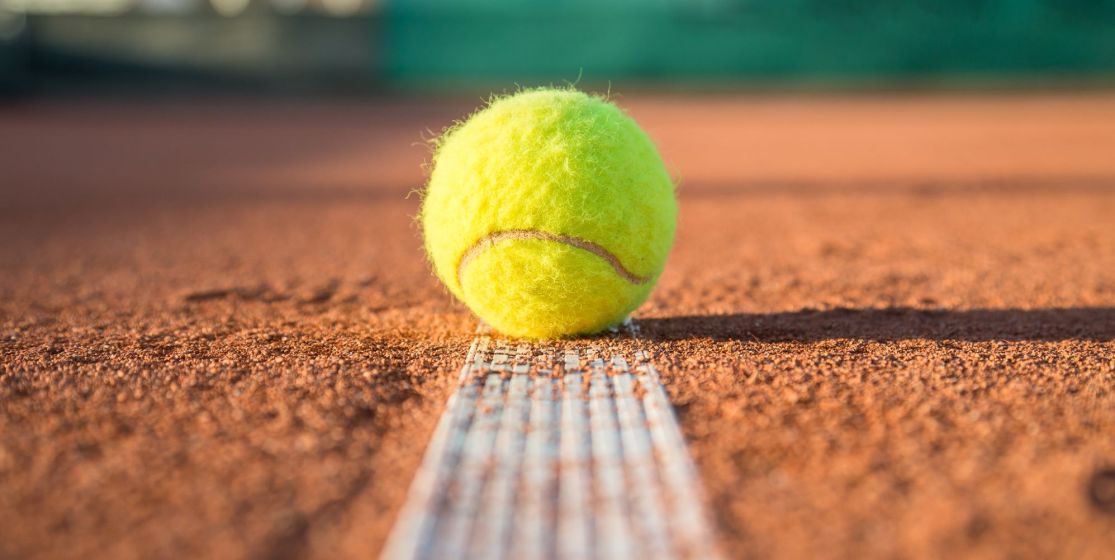David Ferrer will be one of the underdogs in the Olympics in London this weekend but no one is talking about him as a serious contender. It's been seven years that he’s part of the top 15 worldwide and he’s still unknown by the general public. Portrait of an anti-hero.
The guy doesn’t look like much. Nobody is talking about him for the Olympic gold although he was in the quarter-finals at Wimbledon (eliminated in four sets, with three tie-breaks, by Murray, Editor's note), although he won just a few weeks before that the tournament in s’-Hertogenbosch in the Netherlands on grass and although he made it to the semi-finals of Roland Garros, a first for him. With fifty-one victories and nine losses in 2012, the world number five is having the best season of his career. In addition to the Dutch tournament on grass, he also won in Auckland, Acapulco, Buenos Aires and Bastad. A performance that, this season, is only matched by Roger Federer. However, the Valencian continues to toil away in the shadows. His character doesn't fit the standards of the time. He is quiet, has a build of a bygone age (5ft 7, 11.5 St.), and is only the second-best Spaniard and number five on a Tour completely dominated by the Fantastic Four.
Mats Wilander said it during Roland Garros: "David Ferrer is probably the player who has improved the most in the past three years. He’s a nice guy and everybody would like him to win a Grand Slam. The problem is that there are three monsters before him and the defeats that accumulate don't help, even if he often has the right attitude." Though, the man in the shadows has worked so hard. He improved his service, his movement, his backhand and his return is one of the best on the tour, but all this in vain. "He can do everything, he keeps progressing continuously but he lacks a mental snap against the very best. They often bump against him but at the end he almost always loses. He's an ideal son-in-law but he doesn't have the mind of a killer that’s needed to win a Grand Slam" commented the successful coach Jose Higueras. The stats bear him out - of Ferrer’s nine losses this year, seven have been against one of the Big Four. Two each against Djokovic, Federer and Nadal and one against Murray. He conceded only two other losses against the rest of the world since January: against Istomin and Bellucci. At Bastad, “Ferru” crushed Almagro, one of the world's best players on clay, 6-2 6-2. This is the paradox: Outside the top table but better than the rest…
Sessions with old wooden rackets
David Ferrer has losing records against each of the Big Four (5-6 against Murray, 4-16 against Nadal, 0-12 against Federer and 5-8 against Djokovic, editor's note). Worse, he has lost all of the four major finals that he has played in his career. In the Masters Series of Monte Carlo and Rome in 2010, each time against Nadal, last year in Shanghai against Murray, and one against Federer in 2008. In total, he has played thirty-one finals and won half of them. His timidity, his lack of confidence also pushed him to quietly smoke half a pack of cigarettes per day or more in stressful times. "It's not a matter of mental strength but of tennis ability. The first four have more talent than the others. That's all" reportedly said the reserved Spaniard to Nieuwsblad, the Flemish newspaper, last autumn. Conscious of this gap, Ferrer works really hard to offset this psychological deficiency, and has developed a playing style all of his own. Julien Benneteau told the French magazine L'Equipe: "He never lets go, he doesn't makes any faults, never gives up a point. You have to earn it yourself. His best quality is his movement." On a court, Ferrer moves like a flea, jumping on every ball. Very difficult to circumvent. A characteristic born of the Herculean workouts cooked up by his coach, Javier Piles.
Every day he pounds out 6 miles on the road, does intense cycling sessions and, to work his arms, he even exercises with old wooden rackets, heavier than the regular ones. "We work six hours per day; four in the morning and two in the afternoon.” confirms Piles in Le Temps. “When David was younger and he didn’t want to work, I used to lock him up in a dark room of two square meters, where we would store the balls. I would give him a piece of bread and a bottle of water through the bars of the tiny window. After a few minutes, he was starting to call the club coaches asking them to help him but nobody was paying any attention." Ferrer, for his part, claims that it only happened once, when he was seventeen. As a teenager, his talent was there but he was struggling to develop it. So much so that he nearly gave up. "I wanted to quit tennis, but I didn’t want to give up my nights out with my friends. My father made it clear that if I needed pocket money, I would have to work to earn it. So I got a job as a mason. After one week, I realized that tennis wasn't that hard actually" he concludes. He has no reason to complain.
Rico Rizzitelli






